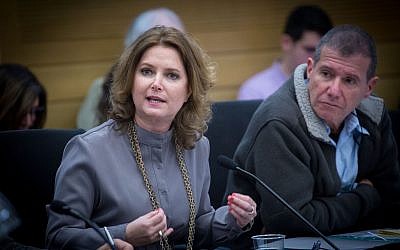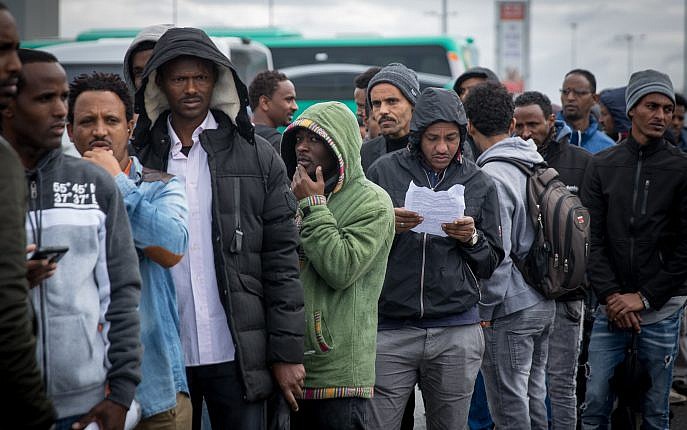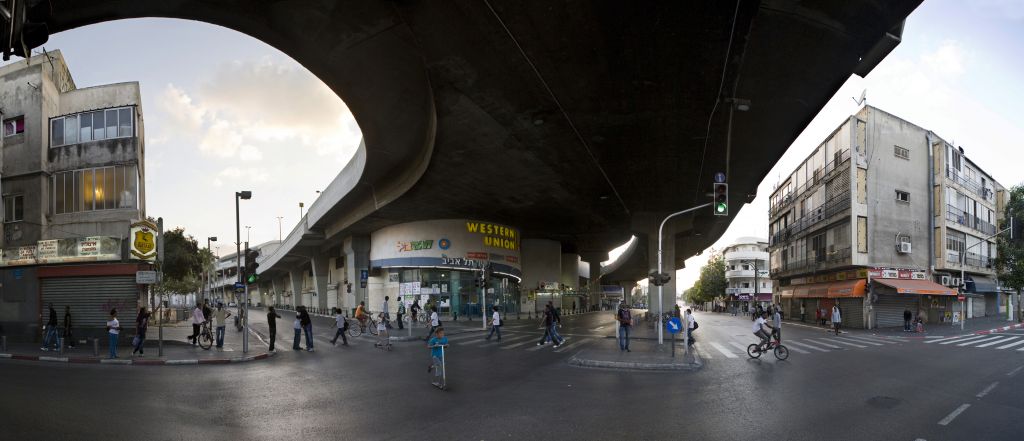Deputy FM: South Tel Aviv plagued by ‘migrant terrorism’
During a heated Knesset committee meeting, Interior Ministry challenged over its policies on Africans' asylum requests
South Tel Aviv is living under a “reign of terrorism from illegal migrants,” Deputy Foreign Minister Tzipi Hotovely (Likud) charged Monday at a stormy Knesset State Control Committee meeting on the issue of African asylum seekers.
Committee chairwoman Shelly Yachimovich (Zionist Union) challenged the state’s legal adviser for a response to Thursday’s court ruling that Eritreans fleeing army service should receive refugee status. Roy Shondorf, the deputy legal adviser, said they were still studying the ruling to determine the state’s response.
There are approximately 38,000 African migrants and asylum seekers in Israel, according to the Interior Ministry. About 72 percent are Eritrean and 20% are Sudanese. The vast majority arrived between 2006 and 2012. A law approved by the Knesset in December stipulates that the Interior Ministry will deport asylum seekers to Rwanda and Uganda starting in March.“I don’t think there will be deportations when they are supposed to happen, and I hope the deportations will never happen,” said Yachimovich.
According to reports, the government hopes to deport 600 asylum seekers per month for the first year. People with open asylum applications cannot be deported before the applications are resolved. At this point, women and children are also not under threat of deportation. An asylum seeker who refuses deportation will be imprisoned indefinitely in the Saharonim prison.
Security guards had to remove a number of angry Israeli residents of south Tel Aviv from Monday’s discussion at the Knesset for yelling at Yachimovich and Eritrean asylum seekers who spoke to the committee.
Yossi Edelstein, the head of enforcement and foreign affairs for the Population Immigration and Borders Authority, said the Interior Ministry is still determining how Thursday’s ruling will affect Eritreans who have requested asylum. It also has not decided what to do with the approximately 2,000 people who applied for asylum after the January 1, 2018, cutoff date. Previously, PIBA said it would only consider asylum applications filed before January 1.
The discussion focused on the process for applying for asylum seeker status, which has been poorly organized and fraught with misinformation, according to MK Michal Rozin (Meretz). Until 2013, Eritrean and Sudanese asylum seekers had group protection and were not required to file requests for asylum. Since the policy changed in 2013, organizations have struggled to get that information out to the asylum seeker communities.

Meretz MK Michal Rozin reacts during Interior Affairs Committee meeting regarding the deportation of African asylum seekers at the Knesset on January 29, 2018. (Alster/Flash90)
Filing an asylum request is also very difficult, requiring asylum seekers to wait in line overnight, sometimes multiple nights in a row.
Hotovely defended the government’s handling of the situation.
“Israel is trying to do our best, we’re a small country, and we cannot absorb large waves of immigration,” said Hotovely. “Like any sovereign nation, we need to decide who can come in and come out. I don’t regret saying that south Tel Aviv is terrorized by infiltrators who are driving up crime rates and sexual harassment and making the streets unsafe for Israelis.”
Rozin also challenged the Interior Ministry’s claim that it follows up on asylum seekers who were deported to Rwanda and Uganda.
“I can’t return to Eritrea, I fled because I was put in jail after trying to flee the army,” Michael Teklit, who was formerly a national long-distance runner for Eritrea and has been in Israel since 2007, told the committee. “This new [court] decision gives me hope, but 90% of my friends couldn’t request asylum. They tried but the offices are always closed. Nobody told us about the deadline of January 1, 2018.”

African asylum seekers outside wait for hours to try to file their asylum seeker requests at the Population Immigration and Border Authority office in Bnei Brak, Israel, February 13, 2018. (Miriam Alster/Flash90)
Yachimovich asked the Interior Ministry to explain why Israel’s rates of asylum claim approvals are so far behind international rates.
The European Union has recognized asylum claims from 90% of Eritreans who apply for refugee status and 56% of Sudanese, according to the European Stability Institute. Israel has recognized refugee status for one Sudanese and 10 Eritreans, out of thousands of applications for asylum, an acceptance rate of 0.056%, according to the Hotline for Refugees and Migrant Workers.
Refugee status is a recognized legal status that allows people to obtain certain rights that vary according to the host country, including work permits, health insurance, education for children, housing assistance and language classes.
Between 2009 and 2017, 15,400 people opened files seeking asylum with the PIBA office. Israel denied asylum seeker status to 6,600 people, and 8,800 applications for asylum are still open.

The exterior of the New Tel Aviv Central Bus Station. (Wikimedia/Roi Boshi)
Approximately 600 deportation notices have already been distributed, 200 to Eritreans in the southern migrant detention center Holot and 400 to asylum seekers elsewhere.
Activist Shula Keshet, who was born and raised in Tel Aviv’s Neve Shaanan neighborhood, accused politicians of “cynically using the suffering of south Tel Aviv” for their own political gain.
“I can talk about reigns of terror, too, but of the Israeli government against south Tel Aviv. If you’re so worried about us, why are you giving millions to Koby Maimon to continue operating the Central Bus Station?” she asked. “All the air pollution, all the prostitution, all the drug dealing — it all comes from the bus station.
“That’s the real cancer in all of our bodies,” she said, alluding to Culture Minister Miri Regev, who in 2012 called Africans in south Tel Aviv “a cancer in our body.”






